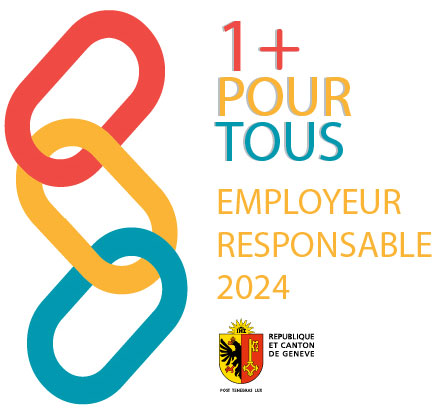- Economic responsibility
- Environmental responsibility
- Social and humanitarian responsibility
- Medical responsibility
- Ethical responsibility
Economic responsibility
Keyword: Economic Viability
HUG manages an annual budget of 1.9 billion Swiss francs. This figure is a measure of the financial responsibility it bears. Efficient and responsible management involves: containing costs; using the entrusted resources sparingly; aiming for efficiency in services rendered. Establishing processes on a care level (access to ER, technical facilities, development of clinical pathways) and new procedures (e.g. control of blood bags) are the guarantors of well thought-out and implemented economic viability. Economic responsibility is indissociable from care quality and safety.
Various indicators are used to monitor and measure economic viability. Institutional dashboards include nearly 200 indicators structured into four areas: patient; services and processes; organization, human resources and budget; finances.
Environmental responsibility
Keyword: Green
HUG's commitment to respectful environmental management is reflected in 11 areas of focus which the HUG has set itself.
-
Environmental assessment : HUG is the first European hospital to carry out an environmental assessment across an entire institution; this assessment and its report serve to promote cost-saving measures to staff and gain external visibility.
-
Mobility plan : promote the use of public transport, P+R, bicycles and electric bikes, develop carpooling, etc.
-
Local produce : implement measures to generate awareness and changes in food consumption patterns and thus reduce the environmental impact. Raising awareness among staff and encouraging environmentally responsible behavior, supporting local business in the food and beverage sector.
-
Packaging : implement measures to reduce the amount of packaging, or to allow recycling or reuse.
Find out more in the 2023 Sustainability Report (FR) and in the Environmental management booklet,
Social and humanitarian responsibility
Keyword: Solidarity
Beyond the services as set out within LAMal (Swiss health insurance law), HUG's mission is to guarantee care quality for all.
Locally, HUG is involved in general interest missions. Further afield, it takes part, to an exemplary level, in medical humanitarian missions.
Some of the general interest missions stem from legal provisions specific to Geneva ; a law on emergency vehicles delegates this vital responsibility to HUG. To serve everyone also means offering consultations to patients who have no health insurance. This entails admitting, and engaging to understand, patients arriving from elsewhere. The Health unit for asylum seekers and refugees (USAR) devotes itself to this, with the assistance of an interpretation service. Family planning is another field where the diversity in the profile of patients treated by HUG comes to light. The HUG never forgets that it is as much a local hospital - the only public health establishment in the canton - as an academic institution.
On a humanitarian level, it is not only the institution, but also often healthcare professionals in their own right who commit to solidarity missions. Each year, senior physicians at HUG give back a part of their fees to a private humanitarian fund. The outcome?
HUG has a Tropical and humanitarian medical division, as well as a Committee for humanitarian affairs, created in 1999 to facilitate, coordinate and develop cooperation projects. This committee studies projects submitted by HUG staff members and provides its recommendations to a redistribution committee that decides on funding.
Furthermore, in partnership with the University of Geneva Faculty of Medicine and various international organizations involved in global health, HUG created the Geneva Health Forum, a bi-annual event attended by over a thousand participants from 65 countries. This forum is a unique opportunity to bring together experts, policy makers, members of civil society and field workers from across the globe.
Visit theTropical and Humanitarian Medical Division
Visit the Geneva Health Forum
Medical responsibility
Keyword: Future
In 2023, the HUG trained 913 doctors, 242 heads of clinic in FMH training, 1,228 medical trainees, 1,332 healthcare professional trainees and 213 apprentices. Preparing tomorrow's healthcare professionals is one of the key missions for the future.
Meanwhile, at a time when many care providers at the peak of their skills are reaching the end of their career, it is vital to optimize the recruitment of new specialists.
In parallel, the HUG invests in talent development within its ranks. An Innovation Day and a Research Day have been established for this purpose each year, with great success.
Find out more about Innovation Day
Find out more about Research Day
Ethical responsibility
In accordance with the State Whistleblower Protection Act (LPLA) and the associated obligations for HUG as an employer, the institution has established procedures for reporting irregularities and for protecting whistleblowers and witnesses through a dedicated platform, accessible via the following link: https://hug.integrityline.io
Employees who wish to report an adverse event (or an AE, meaning an unexpected and undesired incident observed during any clinical, logistical, or administrative activity at HUG and/or occurring within its infrastructure), may file a report on the AE-dedicated platform, accessible via the HUG intranet. Any questions can be addressed by contacting the Personality protection group (GPP).
